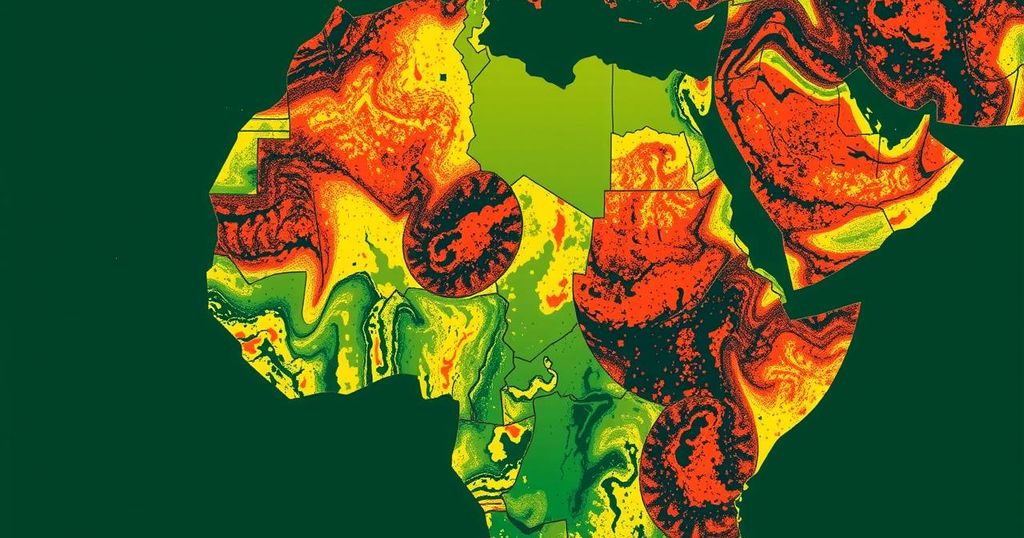The Central African Republic faces severe challenges due to climate change, ongoing conflict, and humanitarian crises. The country’s vulnerabilities stem from weak governance and resource mismanagement, aggravated by clashes among local factions and external pressures, notably from neighboring conflicts. Urgent action from the international community is imperative to address these interlinked issues.
This fact sheet delineates the intricate intersection of climate change, peace, and security challenges that the Central African Republic (CAR) is currently confronting. The CAR is acutely vulnerable to climate change impacts due to its socioecological weaknesses and persistent insecurity, including limited governance, poor management of natural resources, and inadequate community resilience. Despite some improvements in the security landscape, the situation remains unstable, with ongoing conflicts involving the Coalition of Patriots for Change (CPC), various self-defense groups, and bandits who engage in skirmishes with government forces and private mercenaries like the Wagner Group (now identified as Africa Corps) in rural regions. Climate variability is exacerbating existing tensions, particularly as pastoralist communities migrate into the CAR earlier during the transhumance season. This migration is further intensified by deteriorating conditions in neighboring regions, including the Sahel and Great Lakes areas. The humanitarian crisis has also been aggravated by the conflicts spilling over from Sudan, particularly affecting the Vakaga and Haute-Kotto prefectures. There is an urgent need for the international community to implement multifaceted strategies to mitigate these intertwined challenges effectively.
The Central African Republic stands as a stark example of how environmental issues and conflict can deeply influence one another. With a history marked by political instability and armed conflicts, CAR grapples with the dual threats posed by climate change and social violence. Societal structures have crumbled due to years of conflict, resulting in a diminished capacity for effective governance and resilience within communities. This lack of governance further compounds the country’s vulnerability to climate-related impacts, as agricultural practices and natural resource management deteriorate. The interconnectedness of regional instability, such as that seen in the Sahel and neighboring countries like Sudan, magnifies the challenges faced by CAR, necessitating comprehensive responses from the international community.
In conclusion, the Central African Republic is at a critical juncture where climate change, ongoing conflict, and humanitarian crises intersect. The volatility rooted in both environmental changes and armed conflict necessitates urgent, targeted interventions from international stakeholders. Addressing the underlying socioecological vulnerabilities while fostering peace and stability must remain central to any strategy aimed at alleviating the crises in CAR. Failure to act could exacerbate existing tensions and further jeopardize the fragile security landscape.
Original Source: reliefweb.int






